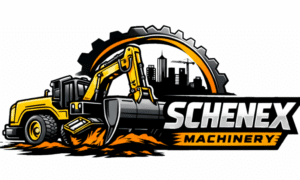Heavy equipment maintenance is crucial for ensuring optimal performance and longevity of your machinery. By following proper maintenance practices, you can reduce downtime, prevent costly repairs, and extend the lifespan of your equipment. In this article, we will discuss the best practices for maintaining heavy equipment and provide all the information you need to know.
Regular Inspections
Regular inspections are essential for identifying potential issues before they turn into major problems. Inspect your equipment thoroughly, including all moving parts, fluids, filters, and electrical components. Look for signs of wear and tear, leaks, loose connections, and any other abnormalities. By conducting regular inspections, you can catch problems early on and take prompt action to prevent further damage.
Proper Lubrication
Lubrication is crucial for reducing friction and preventing premature wear of your equipment’s moving parts. Follow the manufacturer’s guidelines for the type and frequency of lubrication required for each component. Use high-quality lubricants and ensure proper coverage of all lubrication points. Regularly check oil levels and change lubricants as recommended by the manufacturer.
Cleanliness
Maintaining a clean working environment is essential for the proper functioning of heavy equipment. Dust, dirt, and debris can clog filters, damage sensitive components, and hinder performance. Regularly clean your equipment, including the exterior, engine compartments, radiators, and air filters. Use compressed air, brushes, and cleaning solutions to remove dirt and debris effectively.
Proper Storage
When not in use, it is crucial to store your heavy equipment properly. Protect it from harsh weather conditions, direct sunlight, and extreme temperatures. Use appropriate covers and shelters to prevent rust, corrosion, and damage. Follow the manufacturer’s guidelines for long-term storage and perform any necessary preparations, such as draining fluids or disconnecting batteries.
Operator Training
Proper operator training is vital for equipment maintenance and safe operation. Train your operators on the correct operation procedures, maintenance tasks, and safety protocols. Ensure they understand the importance of regular inspections, proper lubrication, and cleanliness. Encourage open communication between operators and maintenance personnel to report any issues promptly.
FAQs
1. How often should heavy equipment be inspected?
Heavy equipment should be inspected regularly, ideally on a daily basis. This allows for early detection of any potential issues and timely maintenance.
2. What types of lubricants should be used for heavy equipment?
The type of lubricants used for heavy equipment depends on the specific components and manufacturer recommendations. It is essential to use high-quality lubricants that meet the equipment’s requirements.
3. Can I clean heavy equipment with water?
While water can be used for cleaning heavy equipment, it is important to avoid excessive moisture and ensure proper drying to prevent rust and damage. Use cleaning solutions specifically designed for heavy equipment cleaning.
4. How long can heavy equipment be stored without use?
The duration of storage without use depends on various factors, including the equipment type, condition, and storage conditions. Follow the manufacturer’s guidelines for long-term storage and perform necessary preparations to ensure equipment readiness upon retrieval.
5. What are the consequences of improper equipment maintenance?
Improper equipment maintenance can lead to increased downtime, costly repairs, reduced performance, and shortened equipment lifespan. It can also pose safety risks to operators and others working in the vicinity of the equipment.
Conclusion
Maintaining heavy equipment is essential for optimal performance, longevity, and safety. By following the best practices discussed in this article, you can ensure the reliability and efficiency of your machinery. Regular inspections, proper lubrication, cleanliness, and operator training are key aspects of effective equipment maintenance. Remember to consult the manufacturer’s guidelines and seek professional assistance when needed. By investing in maintenance, you can maximize the ROI of your heavy equipment and minimize unexpected downtime and repair costs.
Videos:
<iframe src=”https://www.youtube.com/embed/I6cwk8HzWa8″ width=”560″ height=”315″ frameborder=”0″ allowfullscreen=”allowfullscreen”></iframe>
<iframe src=”https://www.youtube.com/embed/rcBNvqFsvdQ” width=”560″ height=”315″ frameborder=”0″ allowfullscreen=”allowfullscreen”></iframe>
<iframe src=”https://www.youtube.com/embed/Y0K-wok3WC8″ width=”560″ height=”315″ frameborder=”0″ allowfullscreen=”allowfullscreen”></iframe>

































